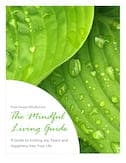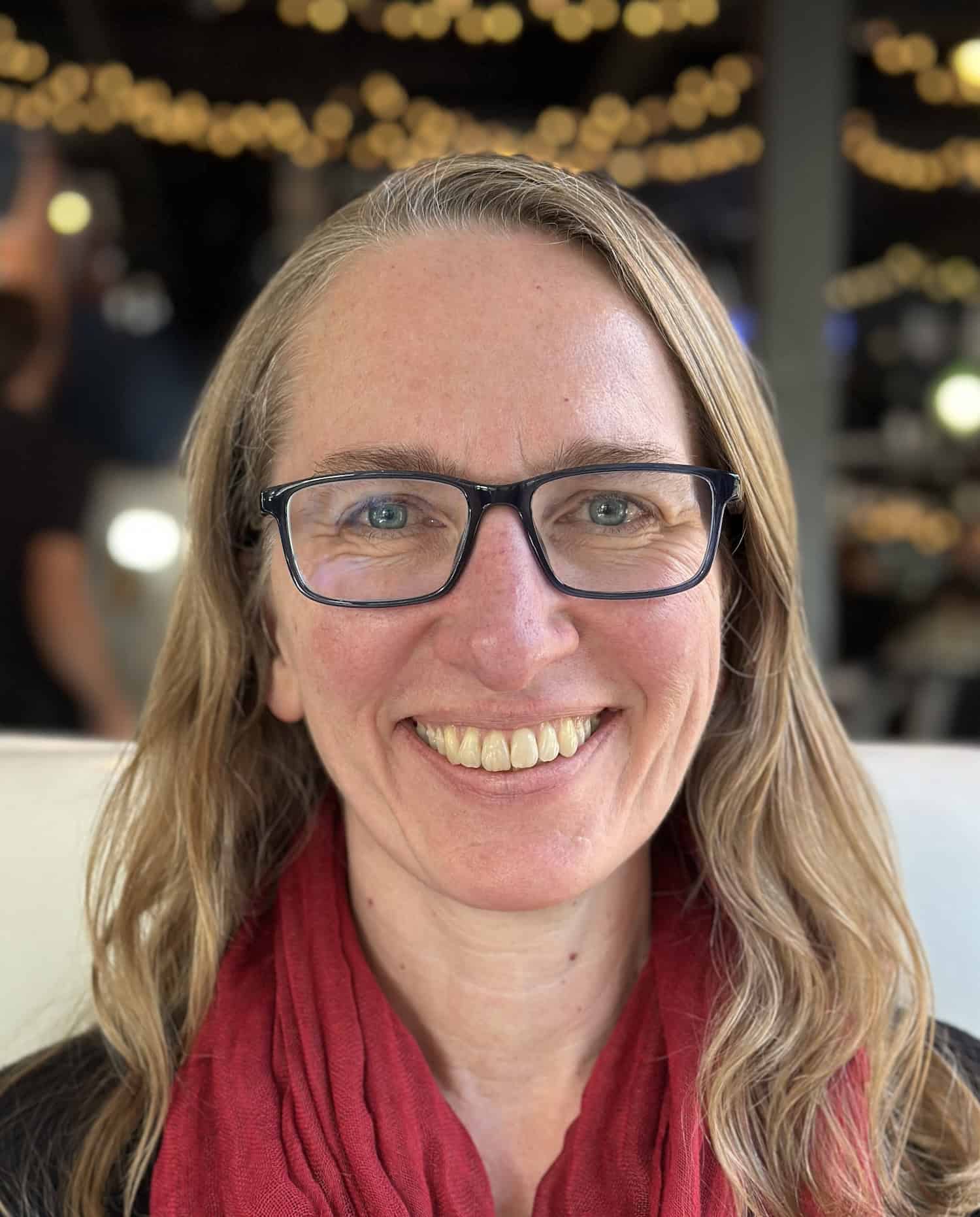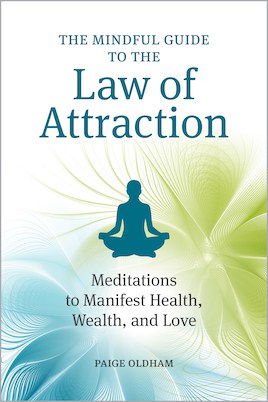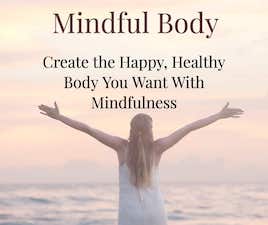You know that your life would be infinitely better if you felt more self-confident. You would have the courage to ask for what you want and deal with all that life throws at you.
What’s stopping you?
Let’s first look at exactly what self-confidence is. It’s tough to go after something if you’re not clear about what you’re chasing. Here are a few definitions I found (other than “confidence in yourself” – duh!):
- The acceptance of oneself.
- A feeling of trust in one’s abilities, qualities, and judgment.
- Faith in one’s own judgment, ability, etc.
Trust and acceptance.
If you can’t accept who you are in the present moment, you’ll resist it while trying to change it. And we all know that what you resist persists.
And if you can’t trust yourself to do great things, you’ll second-guess yourself, see yourself as not enough or create other excuses for not doing what your heart is screaming out to do.
Acceptance and trust don’t happen overnight.
We’re taught that we should let others who “know better” make decisions for us throughout our lives. Doctors, educators, governments, employers – the list is long. We’re taught that we’re not good, smart, talented, whatever enough.
This programs us to not accept or trust ourselves as we are. We’re supposed to trust and blindly accept the ones who “know better” while rejecting ourselves.
Regardless of how old you are, it’s tough to un-learn this. But it’s essential that you do.
HERE is an article I wrote on How To Be Enough.
Un-learning the Feeling of “Not Enough”
I wish I could tell you about some magic formula that quickly erases the feelings of not being enough. But I would rather tell you the truth.
It takes time. Lots of time. It takes time to change a lifetime of beliefs.
You’ll need to accept that it’s a process that happens slowly, in thousands of baby steps that build on each other.
You can expedite the process if you’re willing to throw yourself into situations that scare the crap out of your monkey mind, but it’s still not going to happen overnight.
Here are some questions to ask yourself as you begin your journey:
1. How do you see yourself?
When you were a kid in school, were you the smart one, the dumb one, the jock, the artist, the popular one, the outcast… How has that image been reinforced over the years? What kinds of jobs or businesses did you go after or skip? Did you wait for things to happen to you or did you go out and make things happen? Why?
If you “assumed your place in society” based on where you were born or who your birth family was, what have your assumptions about yourself been? Is your True Self, your heart, happy with those assumptions and decisions?
Do you change your image of yourself to please others, regardless of whether it’s the “real” you? If so, why? Has it served you well?
2. Who do you spend time with?
The people you surround yourself with tend to reinforce your self-image. If you’re trying to make changes in your life while your friends and family want to reinforce the status quo, it may be time to find some new friends.
If you want to change how you see yourself, an easier path is to find people already doing what you want to do. They’re evidence that what you want to do is possible while your current friends and family are telling you that it’s impossible.
3. What is the basis of my decisions? What are my values?
It’s almost impossible to make lasting change in your life without getting clear on your core values. What do you stand for? What’s most important to you? Who are you?
Your core values are what you consciously or subconsciously base all your decisions on.
Getting clear on your core values gives you more confidence to make decisions that are right for you. It allows you to care less about what other people think about you.
Your core values are your rock. They don’t change much throughout your life.
Tim Brownson at A Daring Adventure has an awesome program to help you identify your core values HERE.
The answers to these three questions are your starting point. They’re good to revisit along your path. You can track your progress if you write down your answers periodically and revisit them to see how far you’ve come. Seeing your progress will help your self-confidence.
Your progress probably won’t be linear. I tend to get stuck for a while then have a breakthrough or epiphany and launch forward, only to stall for a while as I absorb how I’ve changed.
Use mindfulness to gently catch yourself doing what the “old you” does and change to what the “new you” does. No judgment. No beating yourself up because you’re not perfect (self-confident people aren’t perfect).
Just notice and make a different choice.
An Example
Although I’ve felt that I’ve had a fair amount of self-confidence most of my life, there have certainly been situations that have tested me. One was when I was looking for a job and felt that networking was the only way I was going to find one (I wrote about it HERE).
Using the three questions, here were my initial answers:
- How did I see myself? A deep introvert. NOT someone who does any kind of networking. Yikes!
- Who did I spend time with? My husband and children. I was an introvert so I didn’t value having lots of friends.
- What was the basis of my decisions? Prior experience told me that I didn’t have to network because I had found other jobs online. What were my core values? Health, family, integrity, freedom.
My monkey mind screeched like crazy at the thought of attending networking events or meetings. This was new and different with unknown outcomes (the monkey hates stuff like that).
My logical mind said that times have changed (this was 2008) and I had to get my butt out there and do whatever it takes to find a job. I saw a lack of income as not supporting my values of health (lots of stress), family (not supporting my family) and freedom (hard to feel free when you can’t pay the bills).
With barely a shred of self-confidence and lots of fear, I got out there and started attending events and meeting people. I acted like a self-confident person even though I was totally nervous and sweating.
It took about three or four months of this before I started to feel more confident. I kept at it and began to truly enjoy meeting and connecting with new people.
I’m still an introvert but one who loves to meet and get to know new people.
I changed how I see myself. I changed who I spent time with. And my self-confidence grew and spread to other areas of my life.
I’m not special in this regard. Everyone has the capacity for change. You simply have to make the decision to want it, have a strong reason why, then act on it.
Yes, it takes a bit of self-confidence to accept where you are and trust that you can make the changes your True Self knows to be right for you.
You have it in you. I know you do.
In the comments below, share your experiences with building your self-confidence so that others can find the courage they need. The community here at Simple Mindfulness is part of the people you surround yourself with. Everyone here is amazing.
Create the life you want: Combine the law of attraction with mindfulness
The law of attraction suggests that our positive or negative thoughts bring about positive or negative experiences. My latest book, The Mindful Guide to Law of Attraction, pairs that belief with the powerful practices of mindfulness. Through intentional breathing, writing, and engaging, you’ll hone a method for manifesting health, wealth, and love―the elements of happiness.
Let the law of attraction work for you by adopting its basic steps of identifying and visualizing the things you desire. Then use 45 practical meditation techniques included in the book to achieve awareness. By concentrating your positive energy on obtaining your wants, you’ll give yourself permission to receive them.
To your happiness! ~Paige

You can find this book at Amazon, Barnes & Noble, Books-A-Million, and Indigo.






 The Mindful Living Guide
The Mindful Living Guide




I love how so many personal transformation can start small and build up, like a snowball.
J.D.,
I think that’s how all personal transformation starts. If it hits like a big bang, it usually doesn’t last. The most effective and lasting changes happen in baby steps that we hardly notice.
I think it is good for one to look into one’s self and accept who they are and accept one’s abilities. I also think that one should take practice and be patient if one wants to better them selves and make a better image in you mind to boost you confidence.
I like how you break down self confidence into 3 parts. I definitely have the second two, but I really struggle with “the acceptance of oneself.” I’m really working on it as part of my 2014 resolution.
That’s great to hear Carol! Sometimes it helps to take steps to fully accept everyone and everything around us before looking inward and working to accept ourselves. It’s definitely a practice to be practiced a little each day. Know that progress happens in baby steps. All the best on your journey!
Thank you, Paige
Happy to help Ukash! Have a wonder-filled day!
Be more of who we really and less of who we are not. This takes some introspection, but we have accomplished that look into our own eyes and soul, we can see the tru power we were born with looking back at us.
A bit scary perhaps, the first couple of times we do it, but after a bit, that knowledge that we are capable and powerful becomes a part of our conscious existence and we learn to be our authentic selves brimming over with self confidence.
Thank you, Paige, this is a great post you’ve shared with us.
Thank you Stephen! Most of us are programmed to be who we’re supposed to be instead of who we are. This creates the fear expressed in the Marianne Williamson quote: “Our deepest fear is not that we are inadequate. Our deepest fear is that we are powerful beyond measure.”
Learning not to care so much about what others think of us is the first step toward giving ourselves permission to look inward and seek our True Selves. From my experience, it’s a slippery slope to much more happiness once we get past that big hurdle.
Excellent points! Thanks for sharing.
Paige, what a beautiful post! Thank you so much for sharing my Simple Self-Confidence Course with your lovely readers. I am so honored.
Thanks Barrie! You gave me a great topic to touch on. I know your program goes into lots of very valuable detail on how to work through this issue.
I would strongly encourage anyone to check out your course since it’s only open for new participants until Feb. 1!
Paige, this is such an empowering post! Thanks for breaking up such nuanced but big experiences into such manageable pieces! Xox
Thank you Jackie! It’s much easier to see where we can go off course when we dissect how we think and act.
Paige,
Such a wonderful post with so many great points, examples, and teaching moments. I absolutely loved your definition of self confidence. Those three mini-definitions were so right on! The question of “how do you see yourself” is one that I struggle with so often. It’s sort of related to the “values” question you listed too. Do I do what I do because that’s “who I am” and how I see myself? Or, am I doing it because of what I feel others would “expect” of me. It’s a daily struggle. 🙂
I really appreciated that you shared your personal story of how you asked those questions of yourself and applied them. Thanks so much for sharing your wisdom! 🙂
Thank you Victor! I went through an “early life crisis” in my late twenties when I suddenly couldn’t see myself doing the corporate job I had for the rest of my life but I didn’t know what else to do. I realized that, up to that point, I was doing what was expected of me. I had never stopped to think about what I really wanted out of my life.
I took a couple years off, following my intuition for the first time. Through an evolutionary and iterative process, I’m back in a corporate job that I love because I can feel how I can express my purpose and live life on my own terms. I’ve broken many of the corporate rules along the way, showing others that working a job and living a unique lifestyle can go together. So much depends on how you see yourself and the world around you. And, yes, this process has built my self-confidence, one baby step at a time.
Inspiring post Paige. Core values are so important in supporting us to live our greatest and most fulfilled life. I enjoyed answering your questions! And am so glad you stepped out bravely and now shine your light for more of us to enjoy.
Thanks Elle! It was a bit of a revelation when I started studying the importance of core values. Once I understood mine, life got a whole lot easier (and more peaceful).
That networking experience was definitely tough for me at first but it’s been one of the best things I’ve ever done. I used to wonder how my mother could walk up to anyone and start talking to them. I cringed at the thought of doing that. Now I love it! And it’s been a key aspect of allowing myself to live my purpose.
Beautiful points Paige – changing the way you see yourself and changing who you spend time with is so important in growing self-confidence. Thank you for sharing your experience as I think we can all use a boost to our self-confidence at different times in our lives!
Thanks Karen! The more we all share our experiences, the more we can accept ourselves with all our imperfections. When we think other people have it all together, our misperceptions are shattered when those “perfect” people share how they’re just like us.
Life is definitely better when we trust ourselves – self-love is so important to truly succeed
Great questions, Paige! Thank you!
Thanks Vidya! Self-love, trust and acceptance may not be easy for some but it’s soooo worth practicing. And I know that when you say “succeed,” you’re not talking about money and career (being the Mother of Mindfulness). Success is being happy right where we are.
Hugs to you!!
Hi Paige,
Glad you were able to build your self confidence when you needed to network. I can relate to being an introvert. I love to meet new people, but also enjoy my alone time. I find that I am better off when I consciously schedule my social time, so I know I get it in each week. Having self confidence can really make the difference in our lives. Thanks for the reminder!
Cathy,
I’m learning that there are many more introverts like us (especially online) who love to meet new people but need some alone time to recharge our batteries. Like everything in life – balance.
We’re social animals so we’re wired to be around others. We just need to understand our strengths and work with those while nudging the boundaries of our comfort zones along the way.
I agree with both of you! People often think that introverts don’t like meeting people. Being around crowds of people, maybe. But no matter which side we tip more towards to, introvert or extrovert, we are still generally wired to be social animals, just like you have said. It’s just how we socialize, that’s all.
I for one, prefer either meeting new people, or my very close friends. Not so in between, haha! And yes, I am very much introverted.
Yes, Jeremy, there are definitely differing levels of being an introvert of extrovert. I’ve always preferred meeting new people or speaking with others one-to-one. It took me a while to learn how to be OK with walking into a room of strangers and introducing myself. I wouldn’t have been able to do that without getting very uncomfortable on many occasions. For me, the “why” was more important than staying where I was so I “felt the fear and did it anyway.”
We all need to respect that everyone interacts with others in their own unique ways. There’s no right or wrong. I grew up in a family of extroverts who constantly asked me what was wrong with me because I was an introvert. I could have felt bad about being different but, instead, I chose to be proud of being “weird.”
We all need to be proud of who we are. The world would be pretty boring place if we were all the same.